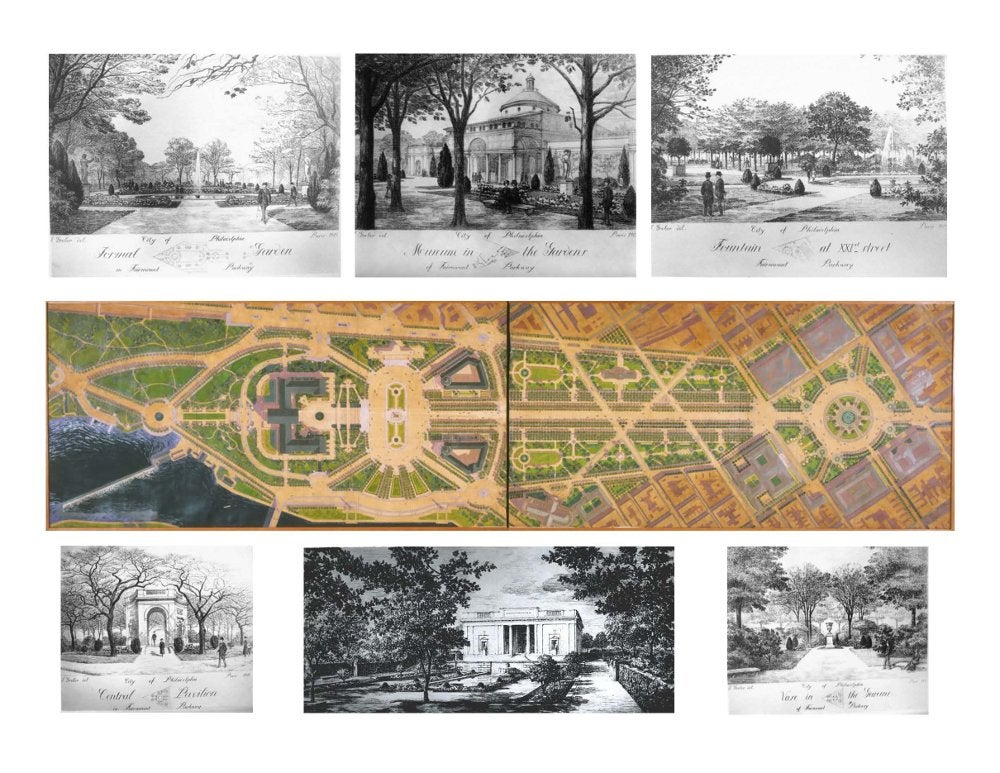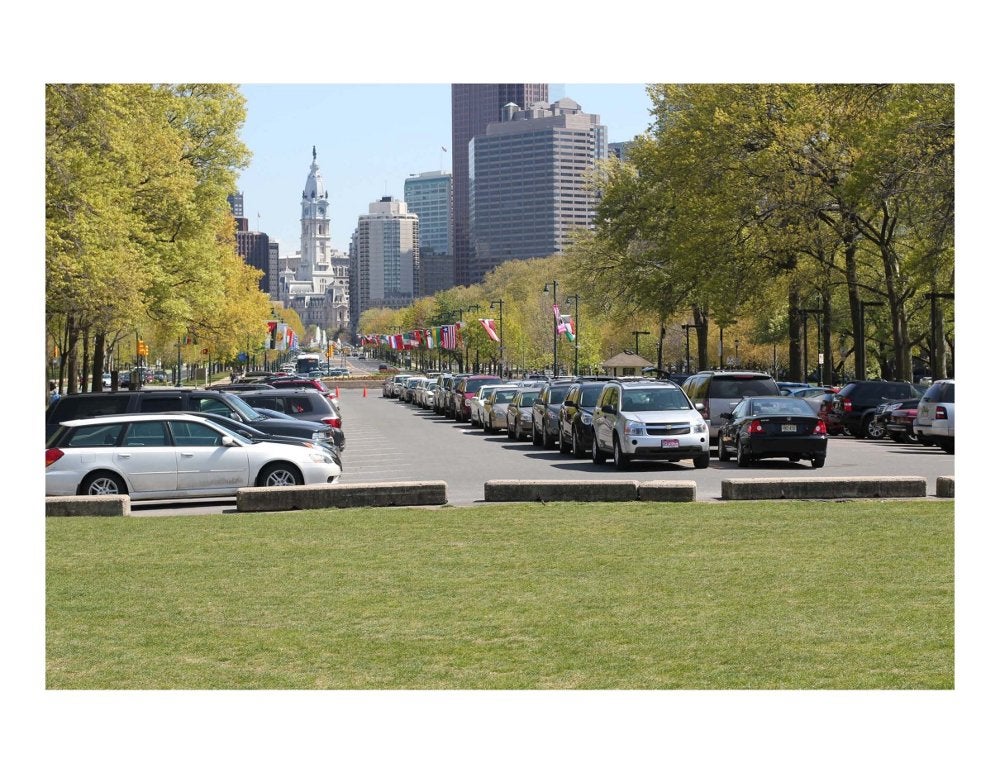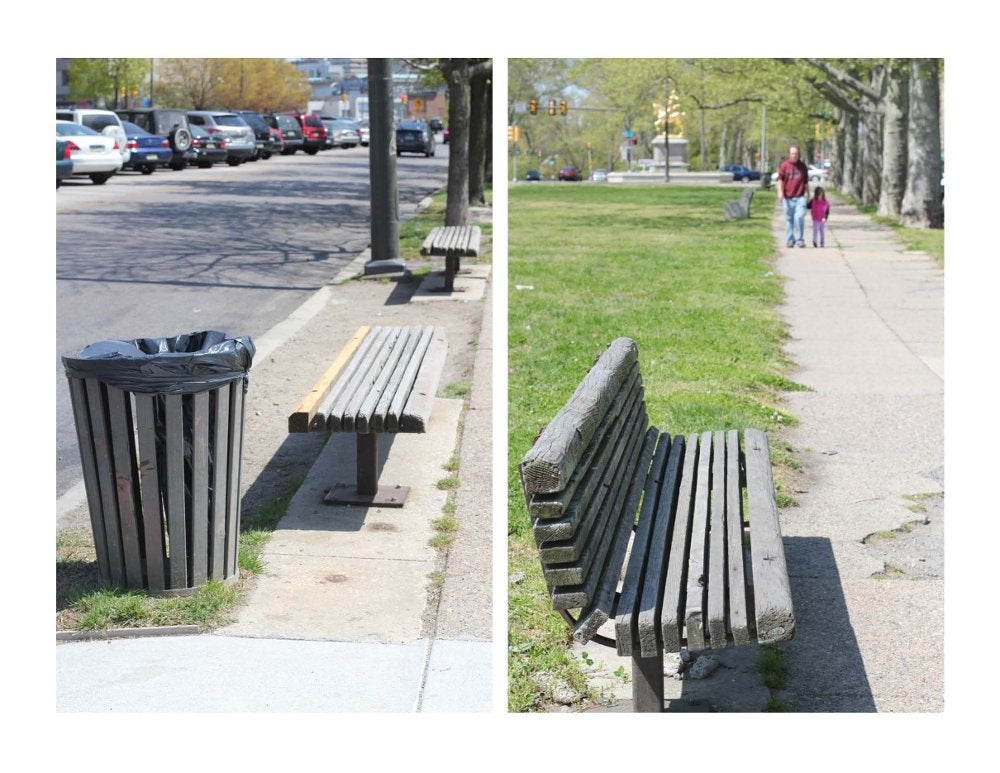‘More park, less way’
Currently, the Benjamin Franklin Parkway is mostly a string of popular cultural institutions that residents and tourists visit, then leave, said participants in a Tuesday night discussion on the parkway’s future.
But add a few cafes, markets and parks for people and pets, and the Ben Franklin Parkway could itself become a destination, they said.
The comments were made at the second of four public input sessions hosted by the Philadelphia Department of Parks and Recreation, the Penn Project for Civic Engagement and PennPraxis to help the city create a plan with quick-hit projects designed to bring more people to the parkway, between the art museum and Logan Circle.
The steering committee leading the planning effort also includes the city planning department, the Philadelphia Museum of Art, the Pennsylvania Horticultural Society, and Center City District. Deputy Mayor Alan Greenberger, who also chairs the planning commission, is leading the committee.
The Parkway study is being funded by $240,000 in grant money from the Pew Charitable Trusts, The Lenfest Foundation, and the Fairmount Park Conservancy. The hope is that the suggestions in the resulting action plan are both impressive enough and easy enough to do quickly that city leaders will be persuaded to funnel capital budget dollars toward them, and foundations will also award grants.
Making things happen will also likely require help from the private sector, or public-private partnerships, said PennPraxis Executive Director Harris Steinberg. Such collaborations have already proven successful at Sister Cities Park and Franklin Square, Steinberg said. (Both spots are also examples of the power of food to bring people to an area, he said.)
The parkway already “is pretty darn impressive,” Steinberg told the about 70 attendees split into smaller discussion groups. “But it has not lived up to its 20th Century vision.”
That vision, Steinberg said, was for a “green wedge” connecting the city and Fairmount Park. The space has its successes, both historical and recent, Steinberg said. “But there is unfinished business,” he said. “We have inherited a hodge podge of planning initiatives from different eons.”
Eakins Oval should be one of the most beautiful spots in the city, but much of it is wasted on a parking lot. Pedestrians – even those who live in nearby neighborhoods – have a very difficult time crossing the parkway. And pity the tourists from out of town, who are completely befuddled at how to get across.
Traffic issues were a hot topic in the discussion groups, with many people saying the parkway now puts too much emphasis on cars. Suggestions ranged from better enforcement of speed and pedestrian right-of-way laws to replacing some traffic lanes with green space or, temporarily closing lanes for festivals or bicycle use.
Participants offer suggestions to improve the parkway.
The traffic suggestions were about making it easier to be on the parkway or move near it, and most of the other suggestions were all about giving people a reason to go there, and stay – even after the museums were closed.
One group offered the team studying parkway fixes a slogan that captured all of this: “More park. Less way.”
Toni Levitt, President of the Spring Garden Civic Association, said during her group’s discussion that most people use the parkway to go to one of the cultural institutions, and then they leave. “If I told my grandson, ‘We’re going to the parkway,’ he would say, ‘What? Why? Is there a playground? Can I get an ice cream cone?’”
The group agreed places for kids, adults and dogs to play, eat, drink and relax would go a long way toward bringing people to the Ben Franklin. And wine or martinis for the adults seemed just as important as ice cream for the kids.
Several participants said guests from out-of-town are always wowed by the beauty of the parkway, and the way it connects so many interesting and lovely places and institutions, but perplexed by the lack of spaces to sit and enjoy it all.
Logan Square Neighborhood Association President David Searles suggested closing some traffic lanes on weekends to make way for farmers markets or other attractions.
Other group members also liked the idea of special events, and commented on the success of those that already take place on the Parkway, such as concerts, parades and the Fourth of July celebration.
Representatives from each group report back, and the closing.
The suggestions given will be compiled into reports that will be emailed to everyone who participated. The compiled suggestions, staff research and previous parkway studies will be used to create the Benjamin Franklin Parkway Action Plan, which will be released in the fall, Steinberg said after Tuesday’s meeting. Work on a quick-hit project is expected to begin soon after, he said.
Those who haven’t had their say yet still have two chances: July 30th at Olivet Convenant Presbyterian Church, 22nd and Mt. Vernon Street, and July 31st at Next American City Storefront, 2816 West Girard Avenue. For both sessions, registration will be held from 6:00 – 6:30PM , and the program from 6:30 to 8:30 p.m.
Reach the reporter at kgates@planphilly.com.
WHYY is your source for fact-based, in-depth journalism and information. As a nonprofit organization, we rely on financial support from readers like you. Please give today.







